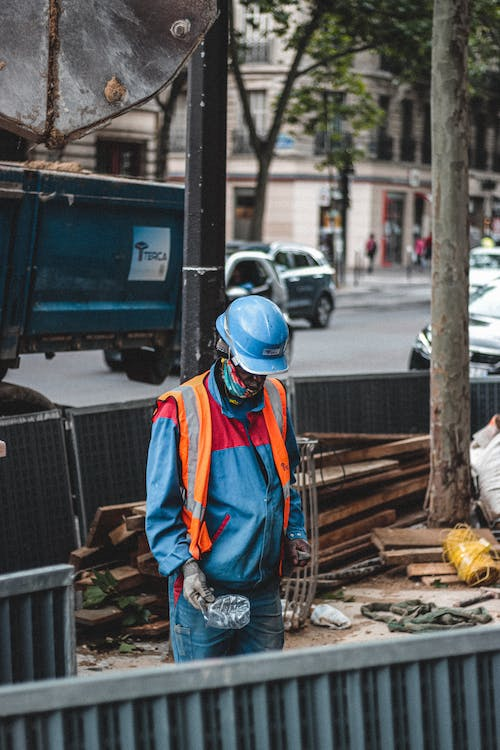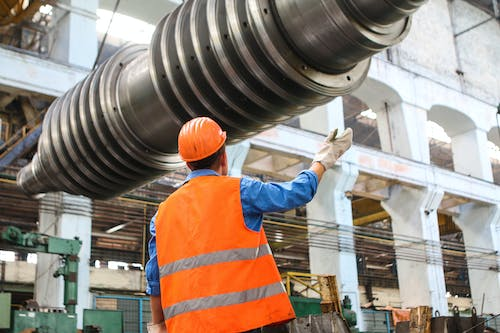There are safety hazards in every workplace. Whether you work in an IT company with faulty wires or electronics, a manufacturing facility with machinery and toxic chemicals, or a farm, there will always be safety and health risks to workers.
If you want to ensure your workplace is safe for your employees, you’ve come to the right place. Our experts at BCS have shared valuable insight about ensuring employee safety no matter what type of company or industry, which we’ve elaborated on below.
Here’s what you need to know:
Prevent Altercations And Violence Issues
External hazards at a workplace can be dangerous, but so are internal conflicts. Workplace violence can harm other employees and adversely impact the working environment. It’ll cause your employees to be anxious, drastically decreasing their productivity. It also has legal implications, and if it’s not dealt with in time, your company might be sued for millions of dollars.
The most important step in controlling workplace violence is to communicate that there is zero tolerance for any violent behavior at the workplace, including discrimination, sexual or verbal abuse, harassment, or bullying. You should back this proclamation with ironclad action if any violent act occurs. Take proper action against the perpetrator, no matter how high they are in the company hierarchy; everyone should receive equal treatment based on their crime.
Prioritize Physical And Emotional Well-Being
Workplace stress can impact employees’ productivity and cause mental issues like depression and anxiety. They might also lose focus during their work, increasing the risk of accidents. Therefore, employees’ mental well-being is just as important as physical well-being.
Encourage your employees to take breaks to prevent burnout and tiredness. Also, introduce counseling services and wellness programs to reduce workplace stress.
Provide Safety Equipment
If you’re in the construction, manufacturing, or electrical work industry, your workers will require safety gear to prevent workplace injuries. And in many cases, this workplace gear can be the difference between life and death in case of accidents at the site.
If your employees work with electronics, machines, or chemicals, they must have PPE (Personal Protective Equipment) designed for safety and fits comfortably. Personal Protective Equipment usually includes medical masks, harnesses, hard hats, helmets, hearing and vision protection equipment, boots, protective clothing, and gloves.
As an employer, you must ensure that everyone on site has quality, comfortable PPE and safety gear and enough replacements in stock to replace if any safety gear is missing or damaged on-site during work.
Introduce A Safety Mindset
Writing safety procedures and policies in a written document is not enough if your employees don’t know the workplace safety procedures and are not committed to keeping the workplace safe.
To counteract this mindset, you can appoint safety managers and bring trainers and consultants to train your employees. The effectiveness of this training will depend on your success in creating a safety-oriented culture. Here are some ways to motivate your employees and encourage them to support a workplace safety culture:
- Reward employees who suggest practical solutions to address workplace safety concerns.
- Encourage employees to approach and communicate with co-workers that engage in unsafe practices to fulfill their duties in the workplace.
- Praise and recognize employees that report safety concerns openly.
- Offer employees incentives and reward behaviors that eliminate unsafe work practices and prevent injuries.
- Create an anonymous feedback channel that helps your employees to come forward and report unsafe work practices and suggest ways to fix them.
Provide Safety Training
Introducing policies is just not enough to improve employee safety. Back up those policies with proper safety training so your employees know the hazards and take appropriate precautions. If they handle heavy equipment and toxic chemicals, they must have the necessary knowledge and skills to do their duties safely at the workplace.
You can discuss these skills and provide knowledge through standardized safety and training programs in topics like first aid training, hazard awareness, fire safety, and more, depending on your workplace and the nature of your work. You can combine hands-on learning with lectures to ensure your workers understand the importance of training for their workplace safety.
One of the best ways to do that is to ask other experienced workers to teach their colleagues about specific kinds of work. This way you’ll improve employee engagement as workers communicate and learn from each other and reinforces the procedures for the trainers. And if any trainer has experienced injuries at the workplace or gotten into an emergency, they can share their experience with the trainees.
Work On Your Workplace Safety Policies
One of the best ways to improve employee safety practices is to apply for ISO 45001 certification. This certification focuses on improving workplace safety to create a better, safer, and more productive environment for your employees.
Getting this certification will help you become a recognized industry leader and improve your reputation as a conscientious business focused on employee safety. This is a highly valuable global accreditation that will allow you a competitive edge with other local and global businesses in your industry.
Reach Out To The ISO 45001 Certification Consultancy
If you’re looking for a reputable ISO certification consultancy, BCS can help you. We provide internal audits and identify workplace safety issues, suggest solutions, and develop workplace safety policies and training to improve employee safety.
We serve clients from different industries, including oil and gas, manufacturing, automotive, aerospace, healthcare, transportation, and more.
Get in touch with us today to learn more about our ISO certifications like ISO 9001 certification consultants, ISO 13485 certification, AS9100 consulting services, ISO 14001 environmental management, and more.




